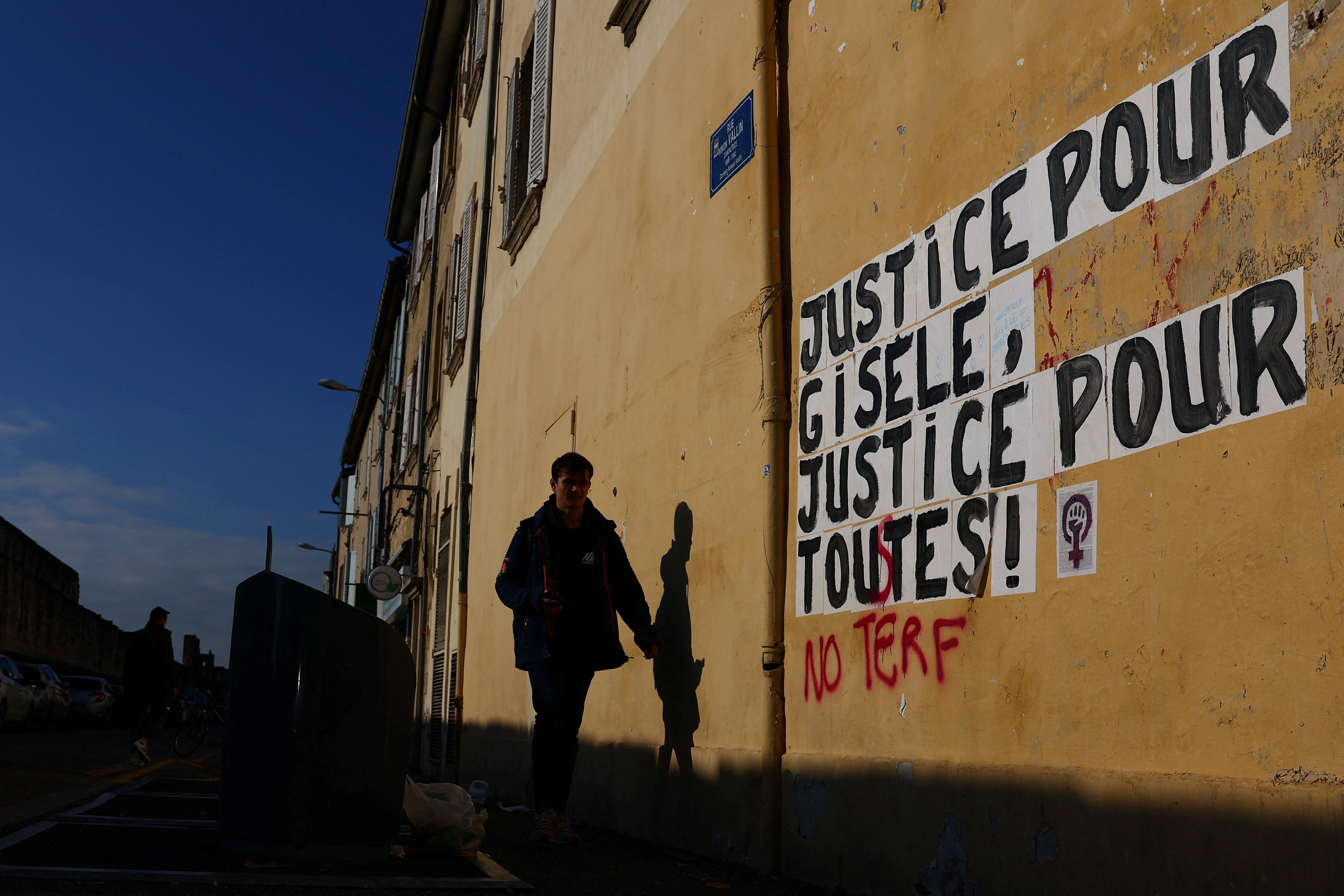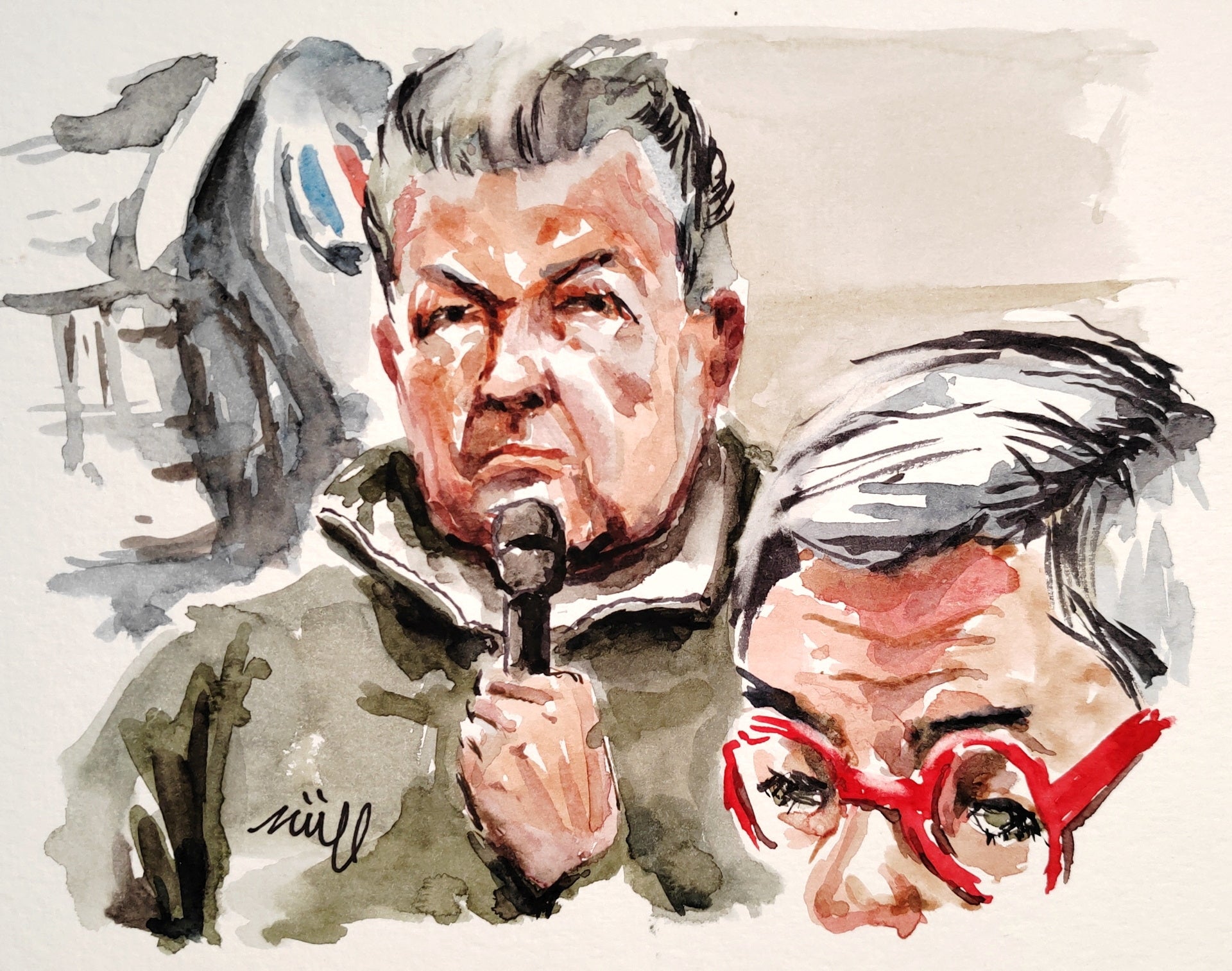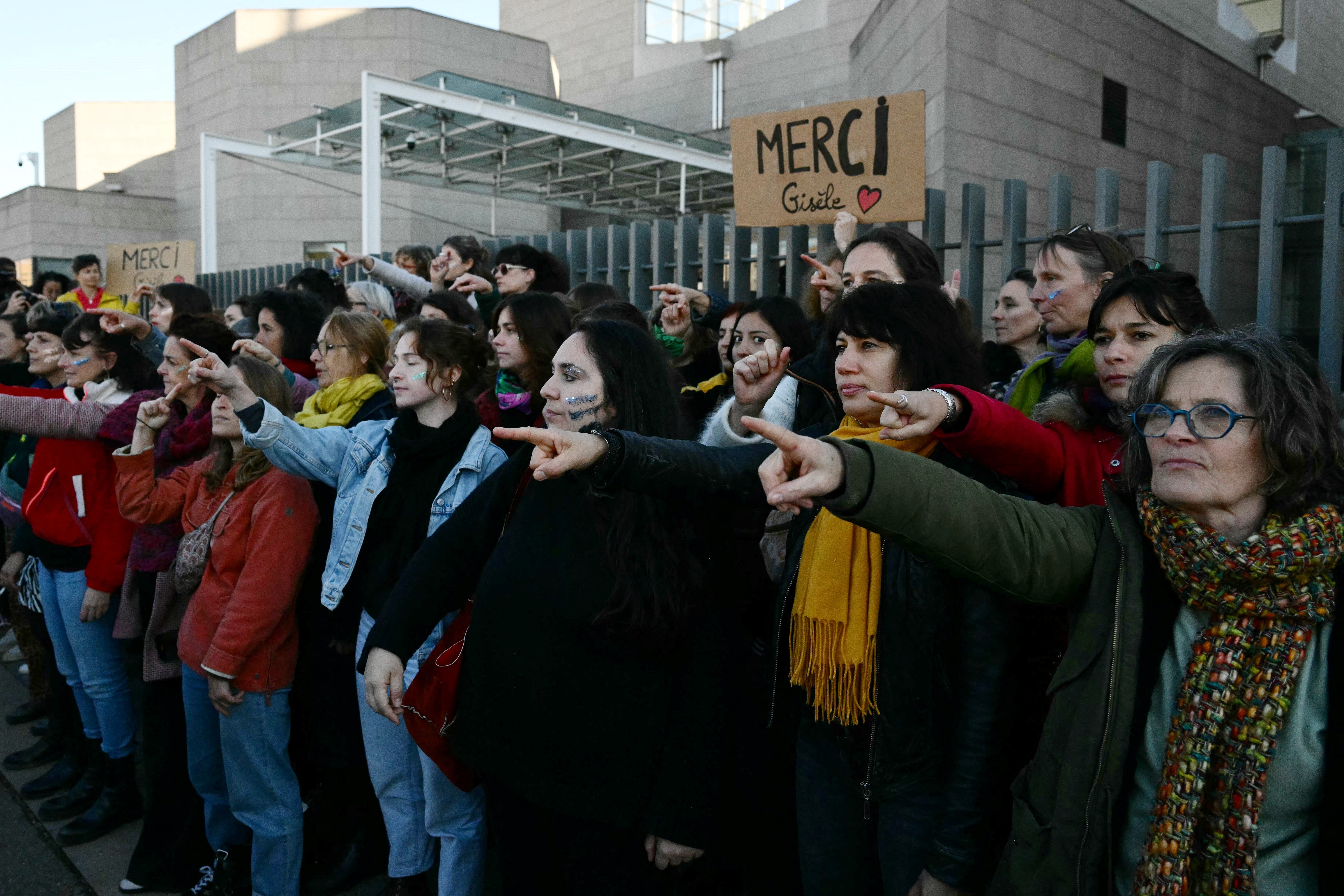The Gisèle Pelicot rape trial shocked France and changed the country forever
Gisèle Pelicot, 72, has become a feminist hero both at home and abroad
Your support helps us to tell the story
From reproductive rights to climate change to Big Tech, The Independent is on the ground when the story is developing. Whether it's investigating the financials of Elon Musk's pro-Trump PAC or producing our latest documentary, 'The A Word', which shines a light on the American women fighting for reproductive rights, we know how important it is to parse out the facts from the messaging.
At such a critical moment in US history, we need reporters on the ground. Your donation allows us to keep sending journalists to speak to both sides of the story.
The Independent is trusted by Americans across the entire political spectrum. And unlike many other quality news outlets, we choose not to lock Americans out of our reporting and analysis with paywalls. We believe quality journalism should be available to everyone, paid for by those who can afford it.
Your support makes all the difference.Around late September, staff manning the phones at 39 19, France’s main anonymous hotline for women who are victims of violence, began noticing a new type of case.
“The caller thinks she’s been drugged and potentially raped. She had suspicions a few months ago and all the information around the Mazan trial has helped her put the pieces together,” a staff member detailed in a write-up of one of several calls seen by Reuters.
The trial, in which Dominique Pelicot has admitted to drugging his wife Gisèle and recruiting dozens of men online to rape her while she was unconscious over nearly a decade, is reaching its end. Dozens of verdicts are expected on Thursday.
The mass rape trial has shocked France and its implications will be felt far beyond the Avignon courthouse where judges have heard and seen more than three months of evidence. Gisèle Pelicot, 72, has become a feminist hero both at home and abroad for waiving her right to anonymity and standing up to her abusers in court.

There are also signs that the case has started shifting social and medical practices in France around drug-facilitated sexual assault, according to 10 doctors, social workers and activists Reuters spoke with.
Women’s rights group Solidarite Femmes, which runs the 39 19 hotline, said it had noticed a clear increase in women reporting suspected cases of “chemical submission” - the act of drugging someone without their consent for criminal purposes - as well as sexual violence within a couple.
“Women call us citing the trial, saying it resonates with their experience,” Mine Gunbay, the head of the organisation, told Reuters.
To better answer these callers’ new questions, Solidarite Femmes organised a training for its phone counsellors in early December.
Lucie, who declined to share her full name due to regular threats received by 39 19 staff, attended the training in Paris. Among other things, she said she learned that most drug-facilitated assaults take place at home rather than in bars.
She also learned about the legal and medical resources that exist to help suspected victims. Two days later, she was able to point a caller in the right direction with her new knowledge.

The Pelicot trial has also prompted soul-searching among some in the medical community, with doctors seeking to deepen their understanding of chemical submission.
Doctors failed to identify the years of drugging and sexual assaults committed against Gisèle Pelicot, who was tested for Alzheimer’s and brain tumors in an attempt to find the cause of the mysterious blackouts she suffered at her home in the southeastern village of Mazan.
Leila Chaouachi, a pharmacist who founded the CRAFS, a centre opened this year to provide information for medical staff and potential victims on the issue of drug-facilitated assault, said doctors and nurses were eager to improve their knowledge in the wake of the Pelicot case.
“We are overwhelmed with training requests from all over the country,” Chaouachi said. The trainings include understanding what drug-facilitated assault symptoms can look like and how to collect evidence of the drugging when possible.
In late November, the government announced measures to ensure potential victims have better access to testing for the presence of drugs in their system, pushed in part by Gisèle Pelicot‘s daughter’s advocacy work through M’Endors Pas (Don’t put me to sleep), a group she launched last year to raise awareness on drug-facilitated assault.
An amendment to create a pilot scheme offering free blood tests to those who suspected they had been drugged and assaulted was included in the 2025 budget bill, but the legislation failed to pass in the political turmoil that toppled former Prime Minister Michel Barnier earlier this month.
The proposal must now wait for fresh talks over the 2025 budget, expected to begin in January. But measures already adopted are testament to the impact of the Pelicot case on French attitudes to drug-facilitated assault, said Christine Louis-Vahdat, a representative of France’s Medical Association.

“Without the trial, it would have probably taken much longer to obtain the funding,” she said.
Louis-Vahdat said the proposed measure, that could be scaled up in the future, would be a crucial step to ensuring doctors have the means to spot cases of drug-facilitated assault.
“The trial has put a spotlight on doctors’ lack of tools,” she said.
The case has also inspired academic research. Doctors at Geneva University Hospitals have recently incorporated chemical submission into an ongoing study on sexual abuse cases after receiving data requests from reporters covering the trial.
“This trial will, I hope, be a point of no-return,” said Chaouachi.

Join our commenting forum
Join thought-provoking conversations, follow other Independent readers and see their replies
Comments